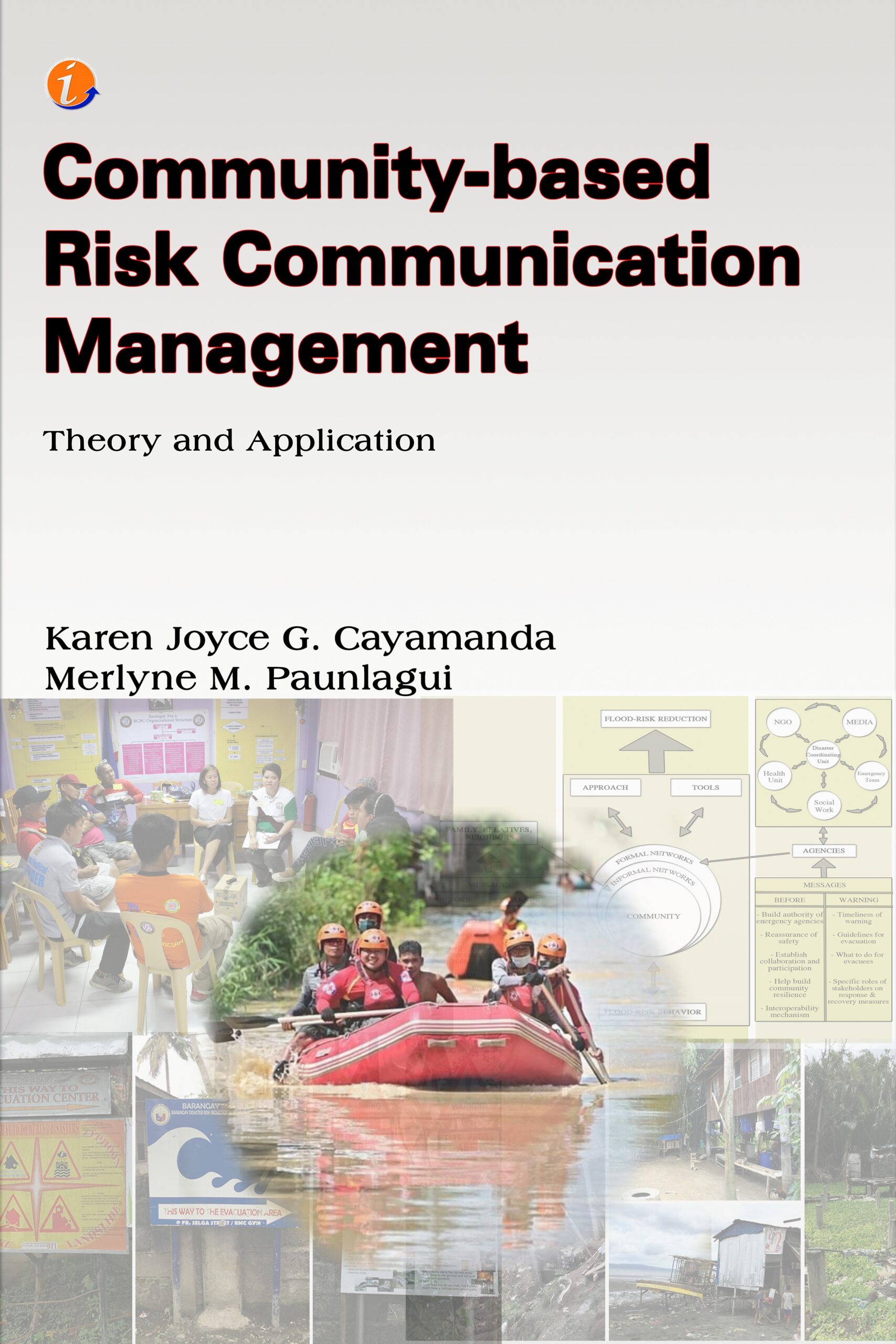Prof. Cayamanda publishes risk communication book
 Reprinted from https://iiari.org/online_book/community-based-risk-communication-management-theory-and-application/)
Reprinted from https://iiari.org/online_book/community-based-risk-communication-management-theory-and-application/)
Prof. Karen Joyce Cayamanda of the UPMin Department of Humanities produced this publication to provide the public with insight into the experience of the flood-vulnerable communities of Davao City, Philippines. The publication was the product of a dissertation for a Ph.D. in Development Studies program. The major objective of the publication is for the academe to assist in mitigating the dangers posed by flooding as a recurring disturbance in these sites.
As extensive literature on disaster studies examined risk communication and disaster risk management, it has been found to be discussed as separate concerns. These studies emphasize the significant role of risk communication and management at the level of the communities to enhance community preparedness and reduce the risks triggered by disasters like flooding. However, no literature has been found specifically in the area of risk communication management. Therefore, the study aimed to focus on this gap in the literature that integrates risk communication with disaster risk management towards a more integrative approach to risk reduction.
Using a convergent parallel mixed method design, the study was conducted utilizing both the qualitative and quantitative approaches in the data collection and analysis guided by the integrated frameworks of disaster risk management and the social amplification of risk (SARF). The merging of both analysis and interpretation results helped identify the findings' convergence or divergence. Results of the study revealed that the risk reduction strategies can be further enhanced through a risk communication management using a localized and participatory approach in the proper knowledge transfer of flood risk communication among the stakeholders involved, placing the community as the central actor for amplification.
This book highlights the proposed community-based flood-risk communication management (CBFRCM) framework as a modification of the SARF labeled as the Flood Risk Amplification Communication Theory (FRACT) as an alternative framework. Applying the theory necessitates enhancing risk communication management toward the resilience of flood-vulnerable communities, specifically in the context of Davao City, Philippines.
The authors wish to share these findings to encourage the use of the proposed theory in other contexts and optimize the role of risk communication as part of the risk reduction approaches of risk managers and policymakers on disaster management.
The book contributes to good governance, participatory decision-making, city disaster risk-reduction, and health risk-reduction, through a collaboration between UPMin's researchers and the city government.
